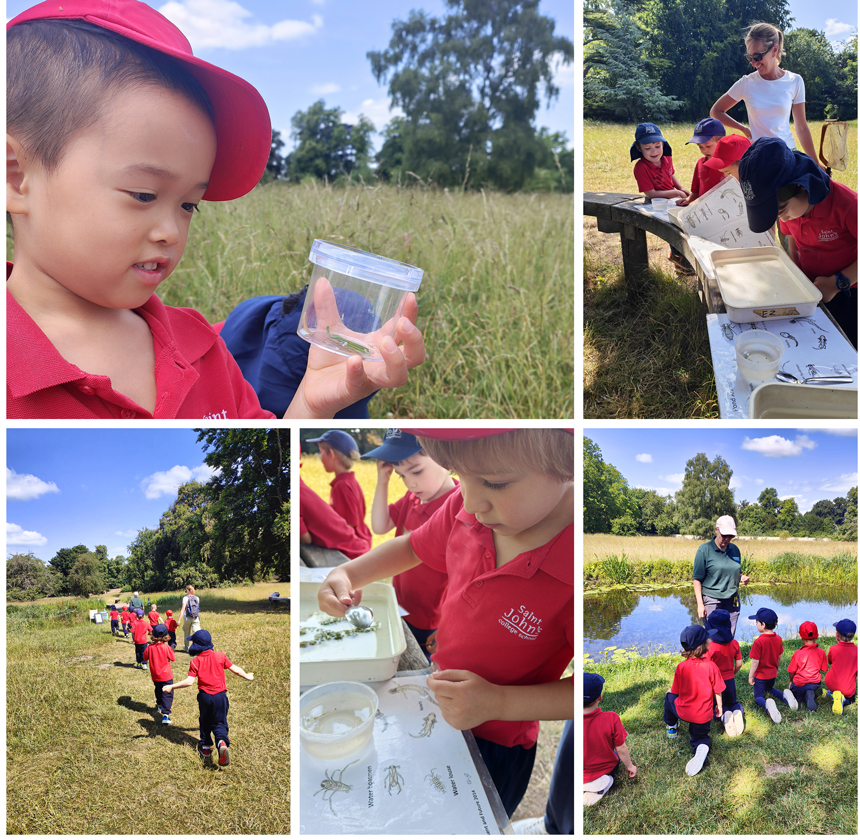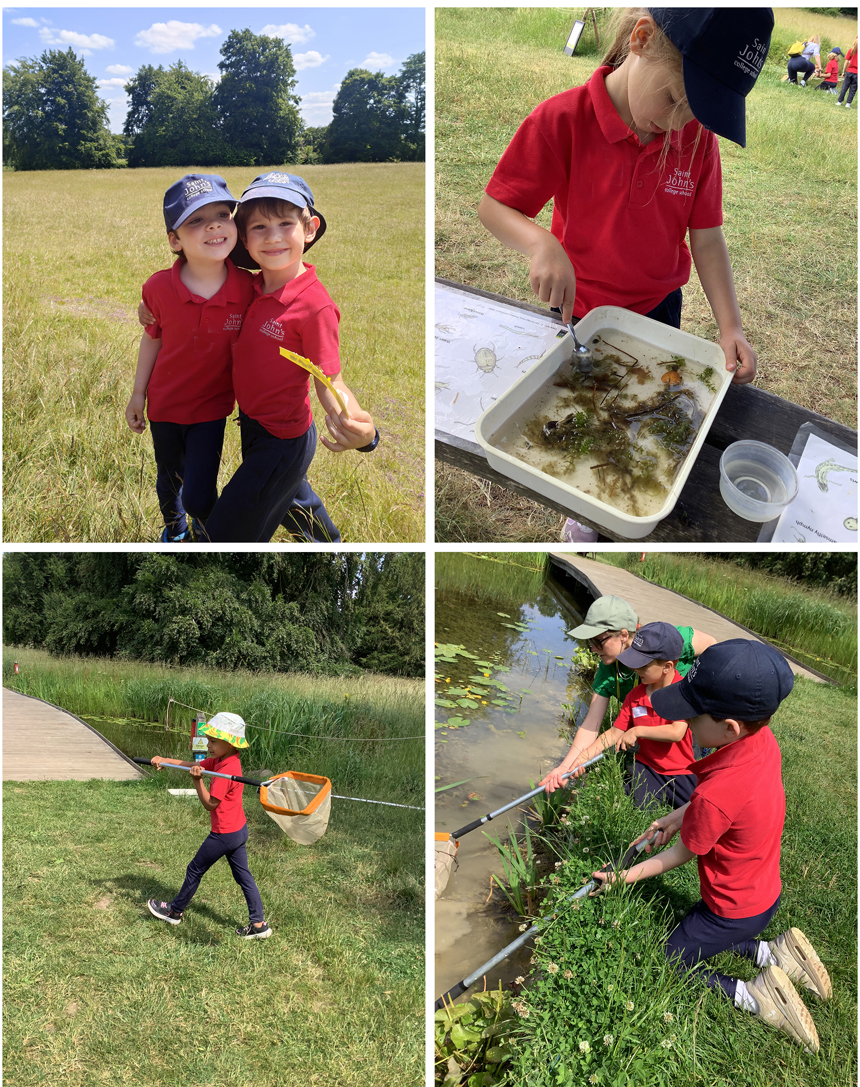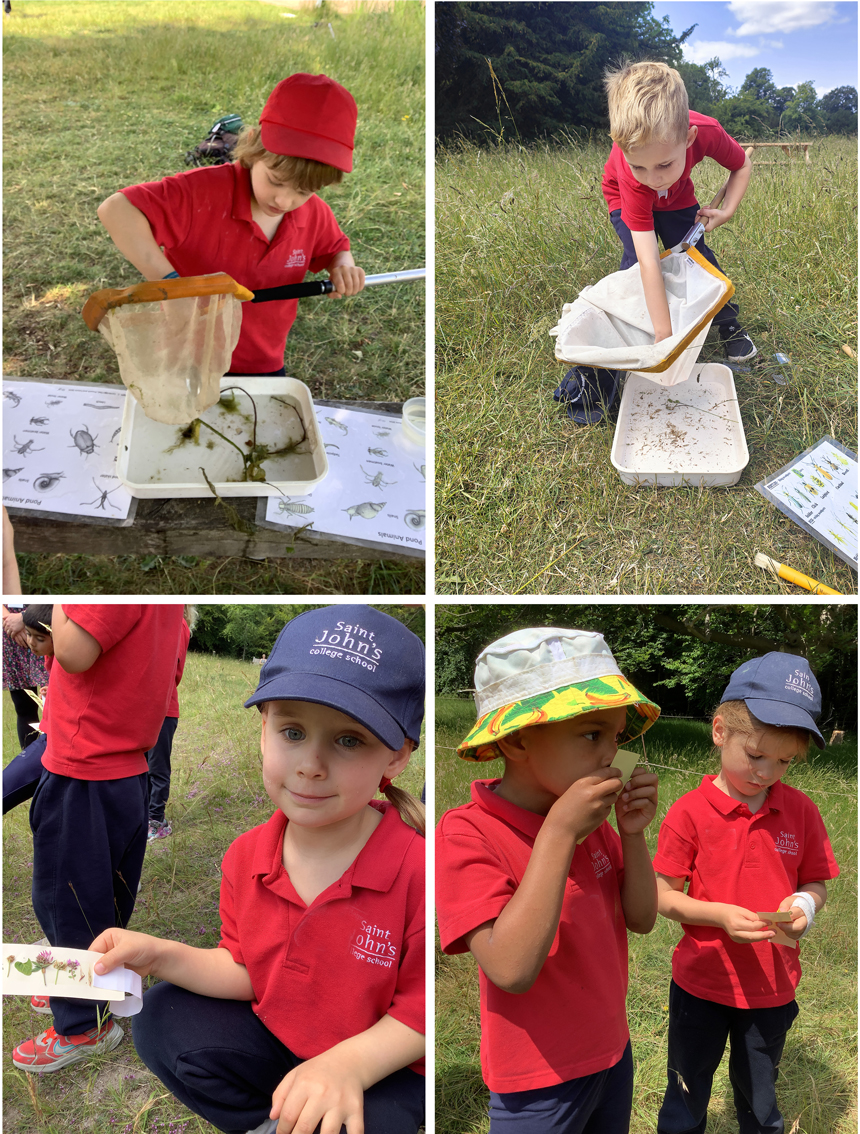Our Kindergarten children enjoyed a rich day of outdoor learning at Wandlebury Country Park, taking part in a series of hands-on activities across chalk grassland, woodland, and pond habitats. The visit formed a key part of their Science learning, helping to build early understanding of biodiversity, lifecycles, and ecological interdependence.
I didn’t know bugs lived under logs—now I want to find more at home! My favourite bit was looking at the water creatures swimming really fast.

Guided by expert educators and brimming with curiosity, the children explored each habitat with purpose. In the woodland, they carefully collected and sorted invertebrates, learning to identify features and behaviours that help creatures survive in different conditions. Close comparisons between environments helped pupils ask thoughtful questions—why might a beetle thrive under a log but not in the long grass?
We found a snail in the water and it had a swirly shell. I didn’t think pond animals could be so tiny.

Meadow sessions encouraged close observation of wildflowers, with children noting differences in petal shape, scent, and colour. Pond dipping proved a highlight, offering a glimpse into aquatic ecosystems. The children were delighted to identify water boatmen, snails, and larvae, using careful handling and simple classification skills. The concept of food chains and webs was gently introduced through storytelling and role-play—setting strong foundations for future learning.

The experience also opened the door to questions of care and responsibility, as Kindergarten reflected on how parks are managed to protect fragile habitats and why human impact matters. This visit was not just a day in nature—it was an invitation to notice, to ask, and to understand the natural world more deeply. A brilliant example of how early science education can be both grounded and inspiring.